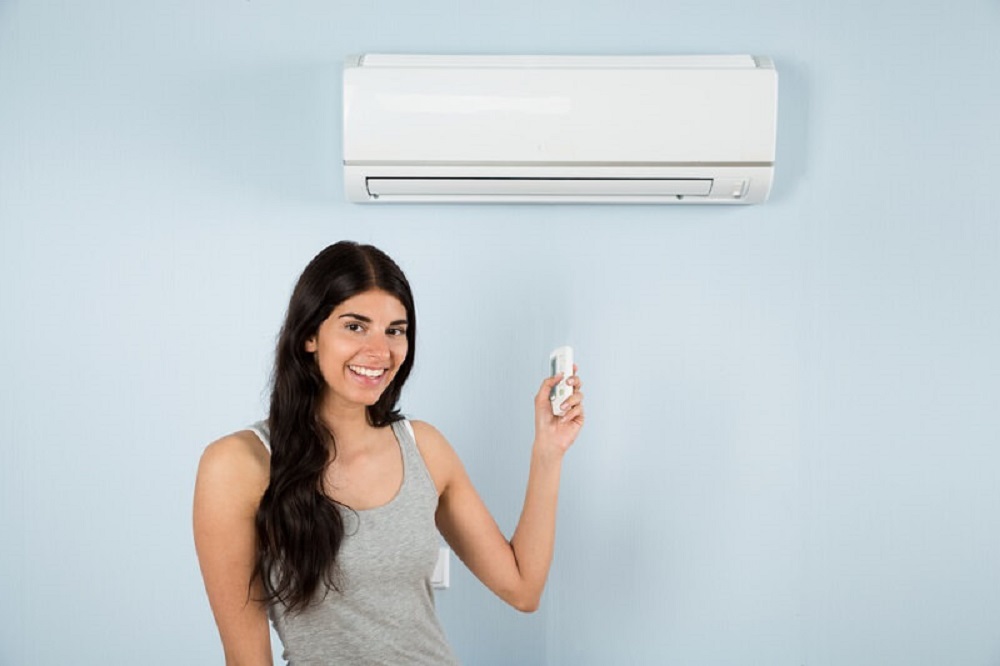The Ultimate Guide to Choosing the Right Air Conditioning System
When it comes to keeping your home or office cool during the sweltering summer months, air conditioning is a must-have. However, with so many different types of air conditioning systems available, it can be overwhelming to choose the right one for your needs.
The Various Types Of Air Conditioning Systems, Their Pros And Cons, Energy Efficiency, And Tips For Choosing The Best System For Your Space.
1. Types of Air Conditioning Systems
a. Central Air Conditioning
Central air conditioning is a popular choice for many homeowners and businesses, as it provides consistent and even cooling throughout the entire building. This type of system uses a network of ducts to distribute cool air from a central unit, usually located outside the building. Central air conditioning is ideal for larger spaces and can also improve indoor air quality by filtering out dust, allergens, and other pollutants.
Pros:
- Provides even cooling throughout the entire building
- Can improve indoor air quality
- Ideal for larger spaces
Cons:
- Requires ductwork, which can be costly to install and maintain
- Can be less energy-efficient than other types of air conditioning systems
b. Ductless Air Conditioning (Mini-Split)
Ductless air conditioning, also known as mini-split systems, are a great option for those without existing ductwork or who want to cool specific areas of their home or office. These systems consist of an outdoor unit and one or more indoor units that are connected by a small conduit. Each indoor unit can be controlled independently, allowing for customized temperature settings in each room.
Pros:
- No need for ductwork, making installation easier and less expensive
- More energy-efficient than central air conditioning
- Allows for customized temperature settings in each room
Cons:
- Can be more expensive upfront than window or portable units
- May not be sufficient for cooling large spaces
c. Window Air Conditioning
Window air conditioning units are a popular and budget-friendly option for cooling smaller spaces. They are installed directly into a window and work by pulling in warm air from the room, cooling it, and then blowing it back into the space. Window units are typically easy to install and can be removed and stored during the colder months.
Pros:
- Budget-friendly option for cooling smaller spaces
- Easy to install and remove
- No need for ductwork
Cons:
- May not be sufficient for cooling larger spaces
- Can be noisy
- Can obstruct views and natural light from windows
d. Portable Air Conditioning
Portable air conditioning units are similar to window units but do not require installation in a window. Instead, they can be moved from room to room and typically vent through a window or sliding door using an included exhaust hose. Portable units are a great option for those who need temporary cooling or who want to cool a room without obstructing a window.
Pros:
- Easily movable from room to room
- No need for installation
- No need for ductwork
Cons:
- May not be as energy-efficient as other types of air conditioning systems
- Can be noisy
- Typically only suitable for smaller spaces
2. Factors to Consider When Choosing an Air Conditioning System
a. Size of Your Space
The size of your space is a crucial factor to consider when choosing an air conditioning system. Larger spaces may require central or ductless air conditioning, while smaller spaces might be better suited for window or portable units. It's essential to choose a system with the appropriate cooling capacity (measured in BTUs) for your space to ensure optimal performance and energy efficiency.
b. Energy Efficiency
Energy efficiency is an important consideration when choosing an air conditioning system, as it can have a significant impact on your utility bills. Look for systems with high Seasonal Energy Efficiency Ratio (SEER) ratings, as these are more energy-efficient. Additionally, consider choosing an Energy Star certified system, as these models meet strict energy efficiency guidelines set by the Environmental Protection Agency (EPA).
c. Noise Level
Noise level is another factor to consider when choosing an air conditioning system, especially for bedrooms or quiet office spaces. Ductless and central air conditioning systems tend to be quieter than window and portable units. Be sure to check the decibel (dB) rating of the system you're considering to ensure it meets your noise level preferences.
d. Installation and Maintenance
Consider the installation and maintenance requirements of the air conditioning system you're considering. Central and ductless systems typically require professional installation, while window and portable units can often be installed by the homeowner. Additionally, consider the ongoing maintenance requirements of the system, such as filter changes and annual tune-ups, to ensure it continues to run efficiently and effectively.
3. Tips for Maximizing Your Air Conditioning System's Efficiency
- Regularly clean or replace air filters to maintain optimal airflow and efficiency
- Seal any gaps or cracks in your home's walls, windows, and doors to prevent cool air from escaping and warm air from entering
- Use a programmable thermostat to automatically adjust temperature settings when you're not home or during cooler periods of the day
- Close curtains or blinds during the hottest parts of the day to block out heat from the sun
- Regularly schedule maintenance and tune-ups to keep your system running efficiently
Conclusion
Choosing the right air conditioning system for your home or office can be a daunting task, but by considering the various types of systems available, the size of your space, energy efficiency, noise level, and installation and maintenance requirements, you can make an informed decision. Additionally, following the tips provided in this guide can help you maximize your air conditioning system's efficiency and save money on your utility bills. With the right system in place, you'll be well on your way to enjoying a comfortable and cool space all summer long.











No comments: